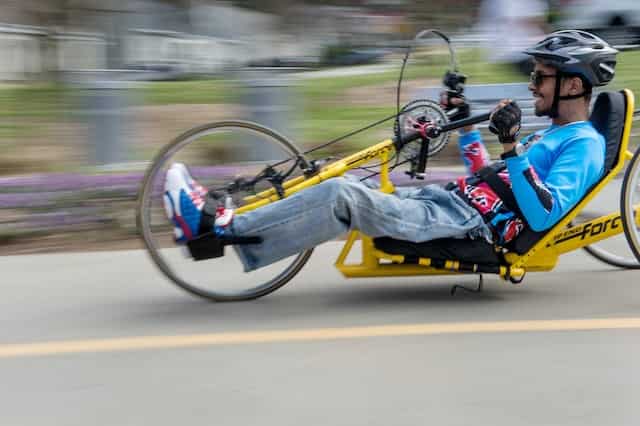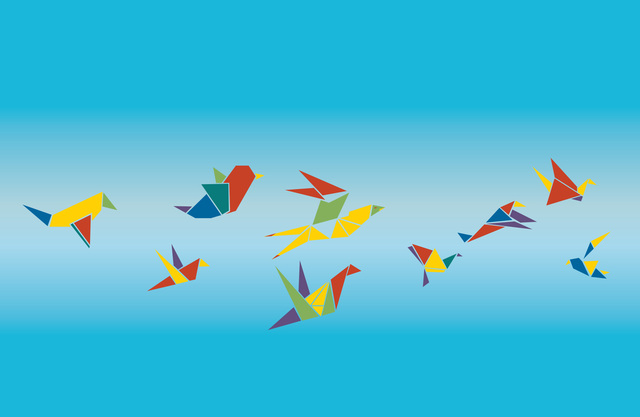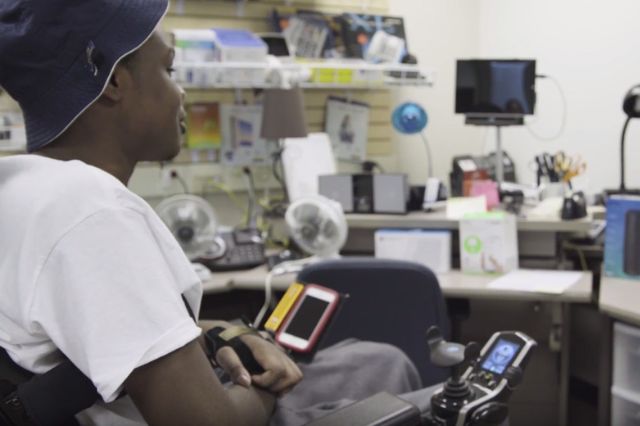Recreation Therapy Resources
This page features helpful resources provided by the Recreation Therapy Department at Shepherd Center.
Americans with Disabilities Act (ADA)
The ADA prohibits discrimination and ensures equal opportunity for persons with disabilities in employment, state and local government services, public accommodations, commercial facilities, and transportation.
Government
- All government facilities, services, and communications must be accessible to all individuals. Examples: DMV, libraries, court proceedings, etc.
- Any state and local government programs must be accessible to all.
Employment
- Employers may not discriminate against an individual with a disability in hiring or promotion if the person is otherwise qualified for the job.
- Employers can ask about one’s ability to perform a job but cannot inquire if someone has a disability or subject a person to tests that tend to screen out people with disabilities.
- Employers need to provide “reasonable accommodation” to individuals with disabilities. Examples: Providing a larger workspace, higher desk, or extra break time to do an IC.
Transportation
- Any public transportation service (bus, train, subway, etc.) in 1992 and newer must be accessible to individuals with disabilities.
- Bus transit authorities must provide comparable paratransit or other special transportation services to individuals with disabilities who cannot use fixed-route bus services unless an undue burden would result.
Public Places
- Private entities such as restaurants, hotels, and retail stores may not discriminate against individuals with disabilities.
- Public places 1992 or newer must be completely accessible for all. If older than 1992, reasonable accommodations must be provided for individuals with disabilities to access services. Examples: ramps, wider doorways, accessible parking and entrances, etc.
Telecommunications
- Landline telephone providers must provide free 411 service to any person who cannot physically flip the pages of a phonebook.
To learn more about the ADA, visit www.ada.gov.
Outing Preparation
What to bring when you go out:
- Extra IC kits and supplies
- Extra pair of pants
- Be prepared for all temperatures
Hot Temperatures
- Sunscreen
- Water
- Umbrella or hat
- Handheld fan
After a spinal cord injury, a person is much more susceptible to sunburn. A daily practice of wearing sunscreen is highly recommended. Staying hydrated in hot weather is also very important. Always keep water on hand. Umbrellas and hats are helpful in protecting skin from direct sunlight. Personal handheld fans can also aid in cooling.
Cold Temperatures
- Wear insulating clothing (wool, nylon, polypropylene)
- Wear a hat
- Add layers
- Artificial heat sources (heat packs)
- Warm drinks
After a spinal cord injury, the body may not regulate its temperature as before. This results in many people feeling cold almost all of the time. This is especially true for people who have higher-level injuries. Reduced circulation can make the extremities feel cold while the body is warm. Keeping the entire body warm in cold temperatures is important for the body to work properly and avoid tissue injury or hypothermia.
Time Management
Always give yourself extra time to get to your destination.
If you think it will take 10 minutes to push to your destination, then allow yourself 20 to 25 minutes to get there. You never know if an issue may arise that will slow your progress (e.g., an impromptu IC, waiting at crosswalks, chair malfunction.)
Plan Ahead
If it is your first time visiting this destination, call ahead to ask about accessibility. Remember, not everyone knows what “accessibility” really means. Ask specific questions about entrances, ramps, walkways, etc. to determine accessibility.
Blood Pressure Management
Low Blood Pressure
Potential Signs and Symptoms
- Pale, ashen face
- Dizziness
- Fainting
Treatment
- Power tilt
- Assisted manual tilt
- Lift the patient’s legs above heart level
- Put on stomach binders and TED hose
High Blood Pressure (Dysreflexia)
Dysreflexia is the body letting you know that something is not right. Dysreflexia is usually only experienced by individuals with a T-6 level of injury and above. However, knowing and understanding this information is important for people with all injury levels.
Potential Signs and Symptoms
- Red face or red blotches on the skin
- Excruciating headache
- Sweating above the level of injury
- Nausea
- Cold, clammy skin
Treatment
- Remove any stomach binders and TED hose
- Head-to-toe check. Check for any loose items that have fallen underneath the legs or anything that may be causing the body discomfort
- IC
- Bowel program
If the problem persists, call 911.
Problem-Solving
Problem-Solving in the Community
There are steps into a building.
- Look for another entrance.
- Check and see if there is a ramp.
- Have someone bump you up the steps.
- Carry a portable ramp in your car.
- Talk to the manager.
Your table is too low at a restaurant.
- Look for a table that might be higher.
- If your armrests are not in the way, try removing them.
- Raise the table using phonebooks, dishwashing crates, trays, etc.
- Put a tray in your lap.
- Pull up sideways to the table.
- Transfer into a chair or a booth.
- Talk to the manager.
The door to the restroom is too narrow.
- Check the other restroom (men’s or women’s).
- Ask if there is a private room or space that you can use.
- Use your car/van.
- See if the place next door has a restroom that is accessible.
- Talk to the manager.
The waiter/waitress does not talk directly to you. He or she asks the person with you what you want.
- Use humor. Say to the person you are with, “Tell the waiter that I would like a Coke.”
- Be direct. Say, “Thanks, but I can order for myself, and I would like a Coke.”
There isn’t accessible seating where you can sit next to your friend or family.
- Transfer into a chair.
- Sit in your wheelchair in an aisle next to a chair.
- See if there is a chair that your friend can move to where there is accessible seating.
- Talk to the manager.
Terrain Management
Ramps
Powerchair
- The caregiver stays on the side of the joystick.
- If the chair dies, be prepared to do a manual push.
- If the caregiver needs to rest, turn the chair perpendicular to the ramp, and the chair will remain stationary.
- The patient can partially tilt back while going down a ramp to feel more stable.
- The patient should NOT be in tilt while going up a ramp.
Manual chair
- Caregiver always has hands placed on the chair when going down ramps.
- The patient will do short pushes at first and then more full-range pushes once his/her momentum goes up the ramp.
Sidewalks
- Always avoid any large cracks, holes, or debris on the sidewalk. The chair may get stuck or messed up.
- Stay in the middle of the sidewalk. The middle is usually the flattest and most stable.
- The caregiver should always walk on the side of traffic so that they are between the patient and the cars in the street.
Curb Cut-Outs
- Square up behind the yellow curb-cut box. It is important to stay behind the yellow box so that if cars round the corner too sharply and the back tires come up onto the sidewalk, the patient is out of harm’s way.
- Always enter at the flattest part of the curb cutout.
Crossing the street
- The caregiver should always cross on the patient's side where there will be oncoming traffic.
- The caregiver will be more visible to oncoming cars as they will be taller than the patient, who is at a seated level.
- Pedestrians have the right of way while in the crosswalk. Even if the crosswalk timer is running out, continue to cross the street as normal.
- If the crosswalk is unfamiliar, wait one full rotation of the light before crossing. This will ensure that you know how much time you have to cross the street once the light turns.
Shepherd Center Specialists
Outdoor Specialist
The outdoor specialist educates on activities such as camping, boating, hunting, target shooting, fishing, ATV, canoeing, and kayaking. For more information, call 404-350-7790.
Outdoor Video Resources
- ATV Transfer
- ATV Rhino Transfer
- Boat Transfers
- Para Boat Transfer
- Boarding a Boar from a Wheelchair
- Launch and Loading a Bass Boat, Paraplegic Style
- Wheelchair Accessible Fishing Boat
- Wheelchair Accessible Pontoon Boat
Sports Specialist
The sports specialist provides education on activities such as basketball, quad rugby, billiards, power soccer, hand-cycling, sled hockey, football, snow skiing, bowling, track and field, fencing, softball, golf, tennis, and bocce. For more information, call 404-350-7797.
Sports Video Resources
Exercise Specialist
The exercise specialist educates on the importance of health and wellness, appropriate strength and cardiovascular exercises and equipment, basic adaptations for equipment, home exercise programs, and general guidelines for health and wellness. For more information, call 404-350-7789.
Art Specialist
The art specialist provides education in expressive arts such as painting, ceramics, clay work, pottery wheel, jewelry making, photography, sewing, wheelchair dance, drama, creative writing, and journal writing. For more information, call 404-350-7792.
Art Video Resources
Aquatic Specialist
The aquatic specialists provide education on activities such as water safety, swimming, water exercise, water skiing, personal watercraft use, and scuba diving. For more information, call 404-350-7786.
Horticulture Specialist
The horticulture specialist educates on indoor and outdoor gardening, seed propagation, flower arranging, bamboo gardens, lawn care, landscaping, raised outdoor garden beds, and horticultural crafts. For more information, call 404-350-7785.
Music Specialist
The music specialist provides education in the expressive arts of music, such as music appreciation, composition, voice, piano, guitar, drum set, harmonica, violin, and percussion. For more information, call 404-603-1447.





